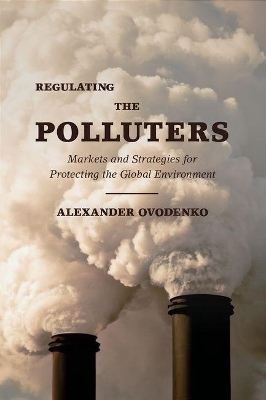
Regulating the Polluters
Oxford University Press Inc (Verlag)
978-0-19-067772-5 (ISBN)
Alexander Ovodenko argues that this variation can be explained by looking to a dynamic that has been thus far downplayed by the literature on global environmental governance: the structures of industries regulated by environmental rules. Specifically, it argues (contra the dominant literature) that it is far easier to attach binding international agreements to oligopolistic industries than those that are fragmented. While concentrated global producers are likely to be more politically influential and thus in a position to shape environmental governance, they are also in a much better position to comply with such agreements as they have both sufficient capital resources and the technological capacity to innovate by adopting "greener" technologies. In other words, the sources of their political influence make them the best and most efficient options for mitigating global pollution. By contrast, it is much more difficult for governments to regulate small-scale producers since such firms and their consumers are much more price sensitive, and these firms have limited resources to devote to compliance. Regulating the Polluters inverts the literature on regulatory capture and collective action by presenting empirical evidence of the irony of market power in global environmental politics.
Alexander Ovodenko is an Energy Industry Analyst at the U.S. Department of Energy.
List of Figures
List of Tables
Acknowledgments
Abbreviations
Chapter 1: Explaining the Design of Global Environmental Regimes
PART ONE
Chapter 2: Downstream Consumers and Climate Change Mitigation in the Airlines and Shipping Industries
Chapter 3: Consumers and Intermediate Producers in the Phase-out of Agricultural and Industrial Ozone-Depleting Substances
Chapter 4: Producers and Market Incentives in the Design of Global Atmospheric Institutions: Financial Assistance and Technology Transfer
PART TWO
Chapter 5: Industrial and Artisanal Producers and the Hybrid Governance of Mercury Pollution
Chapter 6: Producers, Trade Groups, and the Design of Global Environmental Regimes
CONCLUSION
Chapter 7: Regulating under Constraints
Appendix A
Appendix B
Appendix C: Summary of Interviewee Affiliations and Field Research
Notes
Bibliography
Index
| Erscheinungsdatum | 13.10.2017 |
|---|---|
| Verlagsort | New York |
| Sprache | englisch |
| Maße | 236 x 152 mm |
| Gewicht | 476 g |
| Themenwelt | Naturwissenschaften ► Biologie ► Ökologie / Naturschutz |
| Recht / Steuern ► EU / Internationales Recht | |
| Sozialwissenschaften ► Politik / Verwaltung ► Europäische / Internationale Politik | |
| Wirtschaft | |
| ISBN-10 | 0-19-067772-4 / 0190677724 |
| ISBN-13 | 978-0-19-067772-5 / 9780190677725 |
| Zustand | Neuware |
| Haben Sie eine Frage zum Produkt? |
aus dem Bereich


